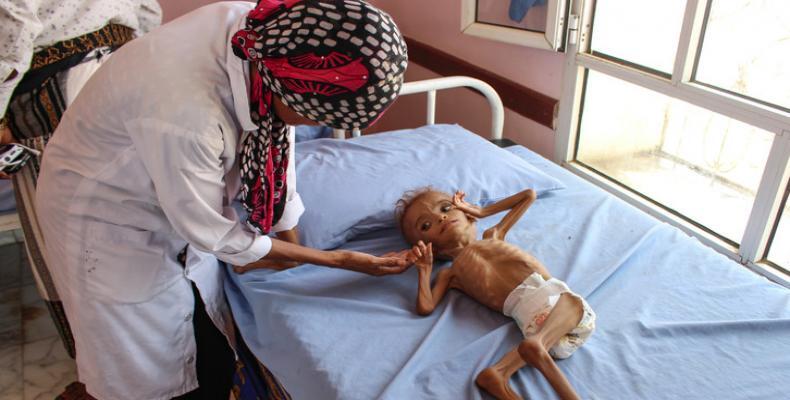The humanitarian emergency taking place in Yemen, considered the most serious crisis in the world today, could deepen even more due to the COVID-19 pandemic that’s capable of ravaging a country, if it lacks the sanitary infrastructure.
Official reports indicate that as of this week, there were 256 infections and only 53 deaths, but this information has no credibility. It hasn’t been taken seriously by any international organization because there is no way to run reliable statistics.
The war started in 2015 when a Saudi-led coalition, supported by various Western powers -- led by the United States -- launched massive bombing raids against the Houthi rebels who expelled the government of Abd Rabbuh Mansur al-Hadi, and destroyed the poorest country in the region.
Hospitals, clinics, schools, public buildings and homes were razed and the population fled to save their lives.
According to the United Nations, some 20 million people have food related problems, half of them are in famine conditions, and around two million children suffer from chronic malnutrition. Most of them live in camps with inadequate hygienic conditions.
In such circumstances, an outbreak of the cholera epidemic still affects 1.2 million Yemenis. Others suffer from diseases like measles, diphtheria, dengue and AIDS.
COVID-19 will be highly ruthless with this vulnerable population and some humanitarian groups estimate that it is currently affecting the entire territory, but there is no way to confirm its impact due to the lack of test equipment.
Another problem associated with the pandemic is the difficulty to raise the necessary funds for assistance programs. The UN, UNICEF, the World Food Program and the World Health Organization stated in a recent press conference that they have the operational capacity to contain the crisis in Yemen, but the money available is not enough to extend their aid across the country.
Mark Lowcock, the United Nations Under-Secretary-General for Humanitarian Affairs, declared that at least 2 billion 400 million dollars is needed, of which 180 million should be directed to the fight against the pandemic.
Meanwhile, and despite numerous calls to enact a universal truce in the armed conflict, war continues and civilians feel how every day, they are one step closer to the end of their lives.


